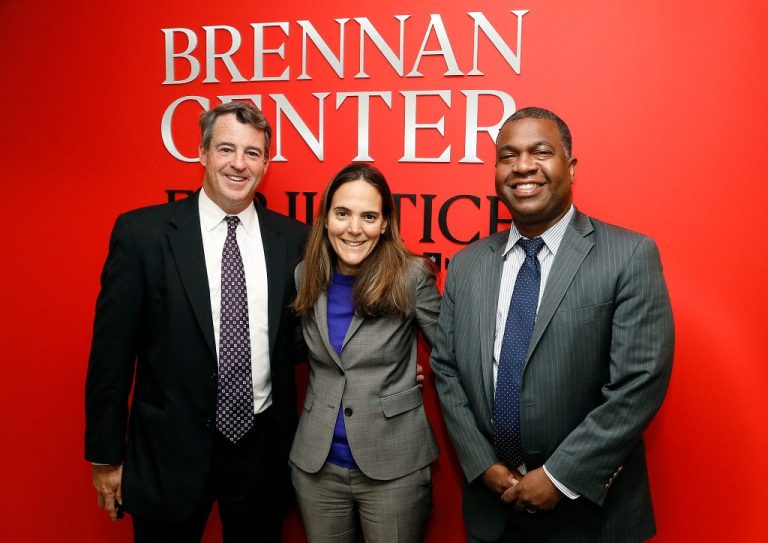The Brennan Justice Center, a public policy institute which receives funding from billionaire George Soros, has rallied several multinational corporations and law firms to turn up the heat in the battle against states such as Georgia and Texas who are working on or have implemented election reform legislation.
The coalition has threatened to use lawsuits, in addition to leveraging its clout for organizing cancel culture, to force states to comply with their demands, according to a New York Times article, which was extensively modified the same day.
Almost 60 major American law firms have come together to “challenge voter suppression legislation” according to the organizer of the unofficial coalition, Brad Karp, Chairman of the Paul Weiss Law Group.
Karp told NYT that the group plans on challenging election reform laws which the organization claims may block citizens from exercising their right to vote and negatively affect voting rights of “underrepresented groups” in the country.
Some of the law firms who are part of the move include Ropes & Gray Sullivan & Cromwell, Gotshal & Manges and Wachtel Lipton, Simpson Thacher, Weil, Cravath, Swaine & Moore, Akin Gump, Skadden Arps. These firms will closely work with the Brennan Center to carry out its objectives.

Success
You are now signed up for our newsletter
Success
Check your email to complete sign up
The Brennan Center is specifically targeting lawmakers in states such as Florida, New Hampshire, Texas, Georgia, Arizona, and Michigan who they say are pushing forward “voter suppressive bills.” In reality, most of the legislative reforms these states are implementing are along the lines of mandating ID requirements for absentee ballots, cleaning up voter rolls, and blocking the unsolicited mailing of absentee ballots.
The Brennan Center is majorly funded by leftist organizations and rakes in millions of dollars annually, according to Breitbart. The organization’s 2019 financial data reveals some of the key contributors to the center include the Open Society Foundation backed by George Soros, the Tides Foundation, the Ford Foundation, Bank of America, Microsoft, PayPal, PepsiCo, JPMorgan, and others.
Over 200 companies issued a joint statement condemning election reform laws similar to what was recently passed in Georgia. The list includes names as big as Microsoft, PayPal, MLB, Cisco, and United Airlines.
Merck CEO Ken Frazier and former American Express CEO Ken Chenault “gathered 70 fellow black leaders to sign a letter calling on companies to fight bills that restrict voting rights, like the one that recently passed in Georgia,” said the NYT piece.
Georgia Governor Brian Kemp stated that he is glad to deal with thecorporate backlash and advised CEOs to compare Georgia’s new voting laws to the laws of other states in which they are doing business.
Former President Donald Trump asked his supporters to boycott companies organizing against Georgia’s voter reform.
A paper tiger
Some companies have also pledged not to donate to campaigns of lawmakers who support and push forward election integrity. However, threats may not materialize in the face of business interests.
An example is found in the case of almost 300 large companies who pledged to suspend contributions to Republican lawmakers who objected to certifying the results of the 2020 presidential election during the Jan. 6 Joint Session of Congress. JetBlue Airways was among the companies. However, JetBlue became the first to break from the threat and contribute $1,000 to Rep. Nicole Malliotakis (R-NY), one of the 147 Republican Senators and Representatives who voted to object to certifying the contentious election results.
JetBlue rationalized the contribution as taking into consideration “all points of view.” Malliotakis is on the House Transportation and Infrastructure Committee, which oversees the airline industry.
Another instance is found through Intel, who also made the pledge, but donated $15,000 in February to the National Republican Campaign Committee, which deals with reelection funding for the party’s representatives.
Intel justified the contributions by stating that they had not made any “direct contributions” to those who voted. Similarly, AT&T, which also announced suspending contributions to candidates who were against election results, donated $5,000 to the House Conservatives Fund. The entity is chaired by objector Republican Mike Johnson.
















